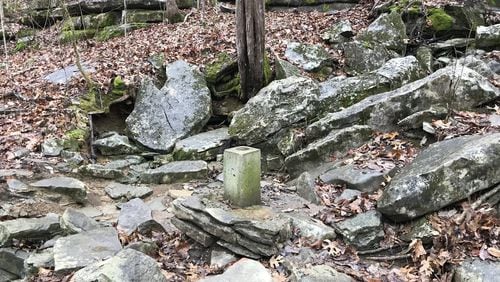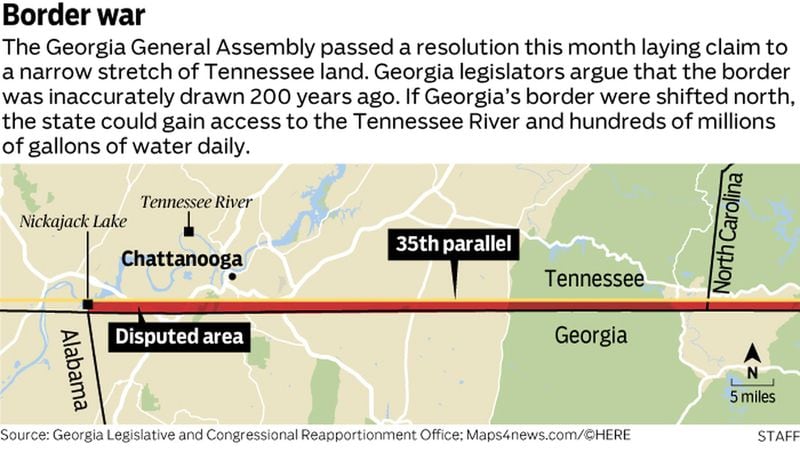Georgia is re-starting a 201-year dispute with Tennessee and North Carolina over its northern border and the Tennessee River.
The Georgia House voted 163-4 last week to pursue negotiations to establish the state's "true boundary lines," according to House Resolution 51.
The border was mapped incorrectly in 1818, when surveyors mistakenly set the line about a half-mile south of where it should be, said state Rep. Marc Morris, the resolution's sponsor. Repeated efforts over the years have failed to reset the border at the 35th parallel, where Congress intended it to be when Tennessee became a state in 1796.
The strip of land in question, which measures 51 miles in length, includes about 30,000 residents and part of the city of Chattanooga.
Georgia legislators approved a similar resolution last year, but a commission appointed to take action on the border didn’t make much headway.
Morris said it’s important to continue pushing the issue, and he hopes it gains traction this year. Access to the Tennessee River could help provide for Georgia’s ever-increasing demand for more drinking water.
“My hope is that we can continue dealing with these issues while water is not at a crisis level,” said Morris, a Republican from Cumming. “It’s vital to our community, for our state.”
The resolution calls for three representatives and three senators to be appointed to a boundary line commission that would contact elected officials in Tennessee and North Carolina. If those states don’t negotiate, the border commission could recommend other, undefined steps to reclaim the land.









